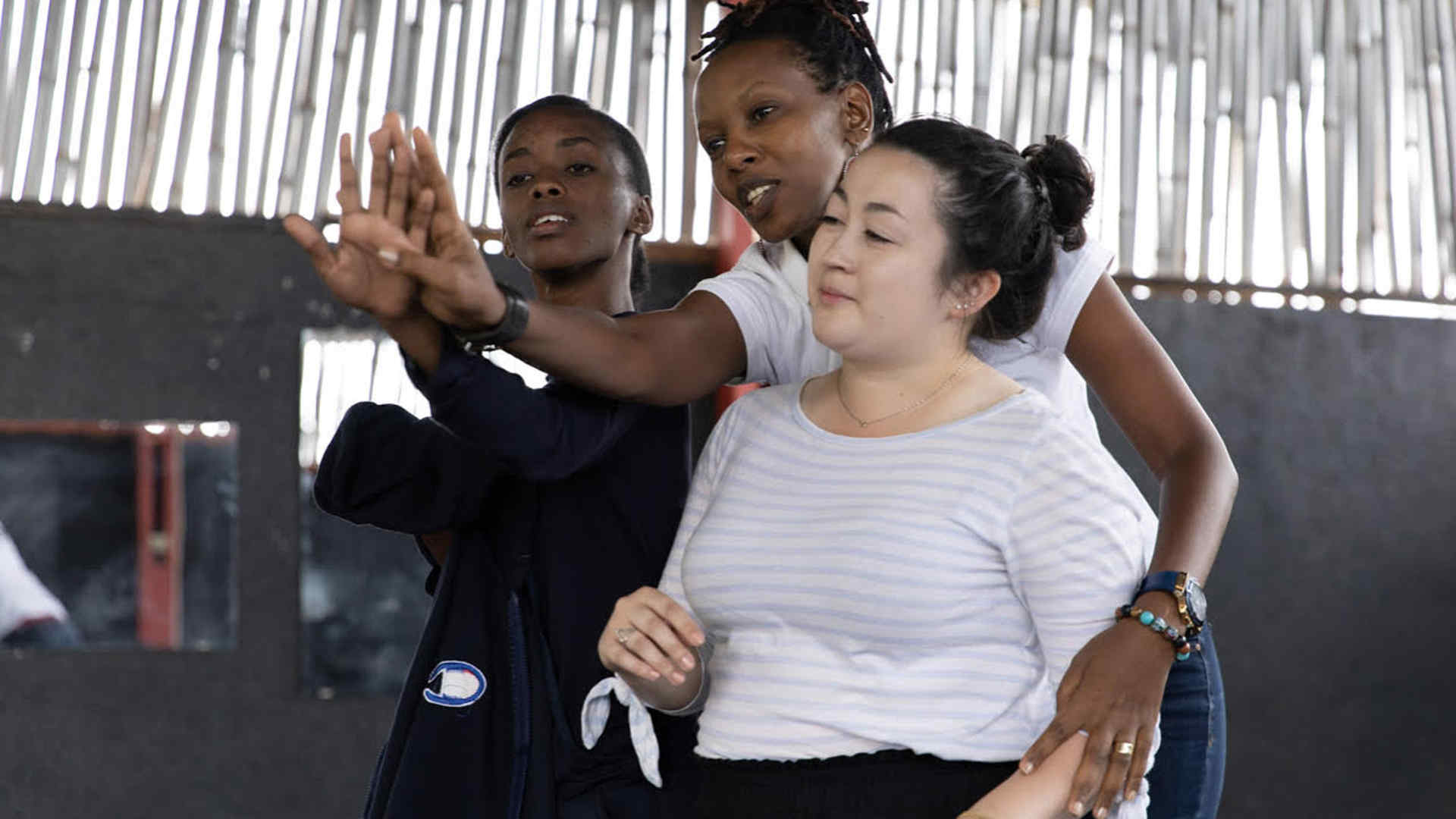
Juilliard students were performing all over the globe this summer, and during the next few weeks, we’ll be posting some highlights. American and Rwandan performing artists had 12 days to create a theater piece and perform it at the Ubumuntu Arts Festival.
In July, I was lucky enough to be part of a team of six artists—drama students Jules Latimer and Gabriela Saker, drama alum Kambi Gathesha (Group 34), bassoon alum Midori Samson (BM ’14) as well as multi-instrumentalist Aaron Stokes—on a trip to Kigali, Rwanda. We were there to collaborate with Hope Azeda and her Mashirika Performing Arts and Media Company on a performance for the Ubumuntu Arts Festival, which Hope founded five years ago, held at the Kigali Genocide Memorial. Hope’s intention was to give international artists a platform to come together and celebrate our shared humanity.
Our task was to create Generation 25, an hourlong devised theater piece amplifying the stories of young people around the world born during and after the 1994 genocide against the Tutsi, who have committed themselves to help stop history from repeating itself. We had 12 artists of different disciplines (half American, half Rwandan) and 12 days.
After the genocide against the Tutsi, many survivors became refugees, taking their Rwandan stories and lineage all over the world. The result has been a generation of Rwandans that have had to find their identity and sense of home again. As an observer of Rwandan culture, I was in awe of how this search for identity has led the country to such meaningful restorative justice practices, incredible care for all members of society, a deep investment in the environment (a plastic ban is very real in Rwanda!), and an appreciation for the arts as a tool for healing. As Americans and as artists, we have so much to learn from Rwanda.
In the months leading up to our trip, I had thought a lot about what the impact of this collaboration might be and where we as American artists would fit into this narrative. By the end of my time in Kigali, I had begun to see that measured impact wasn’t as important as simply having the experience, and that some of the issues facing young people in Rwanda were similar to issues facing young people in America.
On the surface, it might seem strange to invest in a collaboration simply happening, regardless of what “product” emerged. And indeed, our “product” was far from perfect—there were far more microphone malfunctions, missed cues and improvisatory moments than anyone desired. But this trip taught me to never devalue what an experience can do for our world. The magic of our performance originated with the process of American and Rwandan artists creating together—an impromptu lunchtime jam session burst out on day one; an American bassoonist and Rwandan dancer bonded over their mutual love for Pokémon Go; a Rwandan actor’s fear about not being able to keep a school scholarship was shared by an American actor. It was a process in which all 12 artists stood together on a stage and said that this experience has taught us that together, we are more human.
Experience is the first step toward really making a difference in the world. And if artists are to participate in local and global movements toward sustainable justice, it starts with our choosing to put ourselves in situations that are challenging. Devising work across disciplines is really hard. Even harder is navigating devised work across continents. Our team struggled at times—I struggled at times. But that struggle broke down walls within ourselves that resulted in a beautiful, imperfect collaboration that we will hold onto for a long time. To me, that’s where the impact lies—we choose to use the arts to have hard conversations so that we can bring an audience and a world into those conversations too. Even if it’s just for one night in Kigali, Rwanda.
Baritone Thomas West (BM ’18, voice) is founder and executive director of Collaborative Arts Ensemble